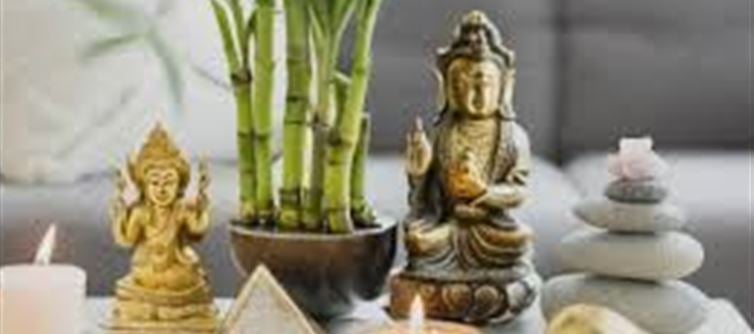
Moving into a new home isn’t just about changing your address—it’s about welcoming new energy, new beginnings, and fresh opportunities. According to Feng Shui, the ancient Chinese science of harmonizing spaces, a well-arranged house can become more than just four walls. It can transform into a haven of prosperity, health, and peace.
Here are five Feng Shui tips that can help you fill your new home with positive energy.
1. The Entrance: Gateway of Energy (Qi)
In Feng Shui, the main entrance is the "mouth of Qi", which means it is the channel through which energy flows into your home. A neglected entrance can block good vibes.
- Keep the door clean, polished, and clutter-free.
- Ensure locks, handles, and latches are in good condition.
- Use plants, soft lighting, or fresh flowers to make it welcoming.
- Avoid broken decorations or dark corners—they trap stagnant energy.
A bright, inviting entrance ensures that only positive energy finds its way into your space.
2. Balance the Five Elements for Harmony
Feng Shui revolves around the five elements—wood, fire, earth, metal, and water. A home thrives when these are balanced.
- Bedroom: Use light wooden tones, soft fabrics, and warm lighting for calmness.
- Study/Workspace: Add touches of fire (red, candles, bright lights) and metal (frames, sculptures) to boost focus and productivity.
- Living Room: Combine earthy tones (beige, clay, pottery) with water elements (fountains, mirrors) to encourage flow and grounding.
Remember: no single element should dominate—balance is the secret to a harmonious home.
3. Cleanse & Light Up Your Space
Before moving in, Feng Shui advises deep cleaning to remove any lingering negative energy from past occupants.
- Mop the floors with salt water for purification.
- Use incense, camphor, or smudge sticks to refresh the energy.
- Let natural sunlight in wherever possible.
- Avoid harsh, artificial white lights; instead, use warm, soft lighting that relaxes the mind.
Good lighting doesn’t just brighten your home—it uplifts your mood and energy levels too.
4. Add Personal Touch Without Clutter
Your home should reflect your identity and bring you joy. According to Feng Shui:
- Hang pictures that radiate happiness and positivity.
- Use plants like bamboo, money plant, or peace lily to bring life and vibrancy.
- Avoid keeping broken, unused, or old items—they block new opportunities.
- Leave some spaces open and uncluttered, so fresh energy and prosperity can flow in.
A little personalisation goes a long way in turning your house into a home.
5. Create a Flow of Positive Energy
Beyond décor, Feng Shui is about how energy moves in your home.
- Avoid blocking pathways with furniture.
- Place mirrors carefully—they should reflect beauty, not clutter.
- Ensure bedrooms are calm zones—no electronics or harsh lights near the bed.
- Kitchens should be well-ventilated with a balance of fire (stove) and water (sink) elements.
By arranging furniture and décor thoughtfully, you create a natural, uninterrupted flow of positivity.
Final Word
Shifting to a new house is more than unpacking boxes—it’s about inviting new energy into your life. With these simple Feng Shui tips, you can create a space that radiates peace, prosperity, and happiness.
✨ Remember: A home aligned with positive energy doesn’t just shelter you—it supports your dreams, health, and relationships.
Disclaimer:
The views and opinions expressed in this article are those of the author and do not necessarily reflect the official policy or position of any agency, organization, employer, or company. All information provided is for general informational purposes only. While every effort has been made to ensure accuracy, we make no representations or warranties of any kind, express or implied, about the completeness, reliability, or suitability of the information contained herein. Readers are advised to verify facts and seek professional advice where necessary. Any reliance placed on such information is strictly at the reader’s own risk.
.jpg)




 click and follow Indiaherald WhatsApp channel
click and follow Indiaherald WhatsApp channel